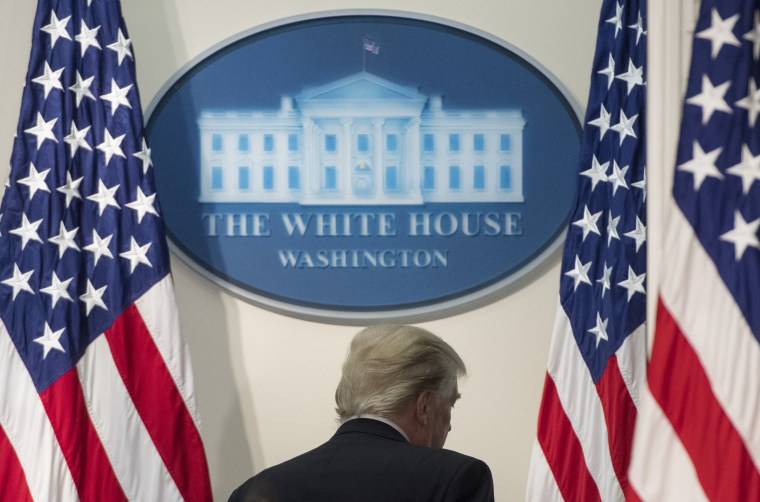It's unquestionably a good thing that Donald Trump overcame his concerns, traveled to Iraq, and visited U.S. troops stationed in Iraq yesterday. There's an expectation that presidents, at some point during their time in office, will make trips like these while servicemen and women are in harm's way abroad, and I'm glad Trump finally did it.
But if you missed the president's remarks to the troops at Al Asad Air Base, it's worth reading the transcript, if for no other reason than to note the familiarity of some of Trump's rhetoric. About halfway through his remarks, for example, he told servicemen and women:
"I don't know if you folks are aware of what's happening. We want to have strong borders in the United States. The Democrats don't want to let us have strong borders -- only for one reason. You know why? Because I want it."
And then a couple of minutes later:
"You know, when you think about it, you're fighting for borders in other countries, and they don't want to fight -- the Democrats -- for the border of our country. It doesn't make a lot of sense."
And then a few minutes after that:
"We have secured a record increase to our military budget, and we are purchasing all of this great equipment -- $700 billion last year; $716 billion -- with a 'b,' with a 'b.' We were fought very hard by the Democrats and others. But I said, 'We have to take care of our military.'"
The factual errors obviously matter -- there was no big partisan fight over military equipment, for example -- but of greater concern are the errors of judgment.
This was familiar rhetoric because Trump has made nearly identical comments on the stump at pre-election rallies. Except, in this case, the Republican wasn't in Ohio, trying to get a few more votes; he was in Iraq, ostensibly thanking the troops for their service.
The sitting president traveled halfway around the world, arrived on foreign soil, and slandered his American political opponents back home in front of active-duty troops serving abroad.
And while I realize Trump often benefits from low expectations, it's tough to make the argument that these antics are OK.
I'll leave it to historians and scholars to speak to this with more authority, but I'm not aware of any modern examples of a president delivering such brazenly partisan remarks to U.S. troops, especially on foreign soil.
On the contrary, Trump's unfamiliarity with American norms and traditions notwithstanding, American leaders generally go out of their way to do the opposite. Commanders in Chief, especially during visits to combat zones, tend to emphasize principles such as American unity and non-political support for those who wear the uniform.
But for Trump to honor these norms and traditions, he'd have to recognize the differences between partisan political rallies and events in which leaders thank Americans serving abroad for their service.
And therein lies the rub: for this president, there are partisan political rallies and there is silence. Too often, nothing exists in between.
